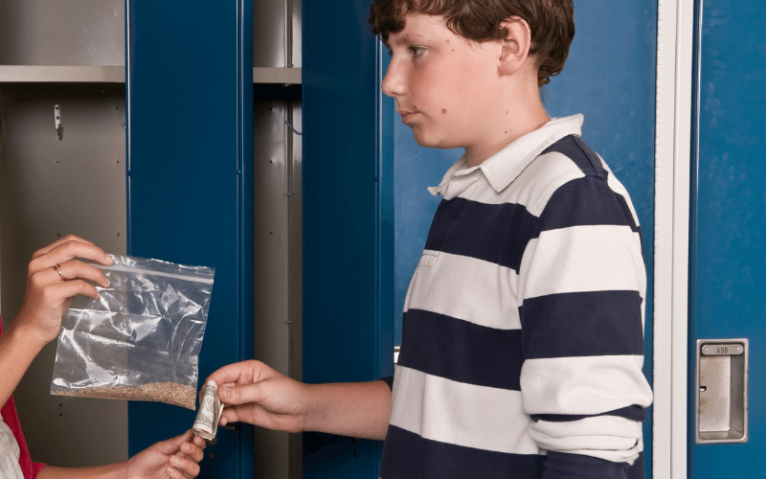Recent Trends in Teen Drug Abuse
Over the last several years, there have been some intriguing trends in teen drug abuse rates. While tobacco use has decreased among teenagers, rates of marijuana use, prescription pill abuse, and abuse of drugs like LSD have either remained steady or increased.
In fact, in the most recent survey conducted nationally, data showed that 1 in 5 Americans ages 12 or older used an illegal drug at some point during the year. This rate is higher than in past years. All results indicate that no matter the substance, teen drug abuse is still a significant problem in America. Even more concerning is this: in 2018 (the most recent year of collected data ), over 10 million American kids ages 12 or older abuse opiate prescriptions.
More than half of them got the drugs from a relative or close friend.
What Parents Should Know About Teen Drug Abuse
If teenagers are getting opiates from friends and relatives, that brings up some concerns. When you go to the doctor, they may prescribe medications to treat anxiety or chronic pain. It’s important to realize that many of these drugs have addictive qualities. If you are a parent of a teenager, check your medicine cabinet. Commonly abused drugs include Xanax, Vicodin, and cough syrup. Additionally, benzodiazepines and opiates are some of the biggest offenders.
Thus, if you have these substances in your home, it’s a good idea to think about securing them with a lock or storing them in a secure place. But what about other substances? Teenagers experiment with drugs like marijuana, cocaine, and alcohol every day across the country. Thus why parental education on the warning signs of teenage drug abuse is a crucial step in prevention.
Signs to Watch Out For
Having a teenager brings with it many changes in mood, attitude, and routine. But some significant changes might indicate that your child is experimenting with, or abusing, drugs. These signs include:
- Watered down liquor bottles or missing alcohol – this could mean your child is using the alcohol in your home
- Paraphernalia: finding things like plastic baggies with residue, cut up straws, rolled-up dollar bills, pipes, or joint papers can indicate drug use.
- Significant changes in behavior or mood: this one is hard with teenagers. But if you notice drastic changes in mood or sleep patterns, hanging out with a different crowd suddenly, extreme mood swings, or unexplained money issues, this could indicate drug abuse.
- Physical changes: dilated or pinned pupils, frequent bloody noses and sniffling, extreme weight loss or gain, or unexplained injection marks can all mean drug abuse and addiction.
- They are running out of prescriptions too quickly. Whether your anti-anxiety meds are suspiciously low or your child finishes their pain medications too soon after a wisdom tooth removal, these are signs of drug abuse.
These are just a few of the signs of teen drug abuse for parents. So, you have found a few signs, and you’re concerned- what next?
Dealing with Teen Drug Abuse
First and foremost, it’s essential to talk to your kids openly about drugs and the dangers they pose. Discussing this openly with your kids, and letting them know that they can speak to you honestly, is one of the most powerful tools you have as a parent. If you have started to notice signs of drug abuse in your child, the next step is usually seeking help. If you need some tools for confronting drug abuse effectively, family therapy can help. Programs like Al-Anon and Families Anonymous can also be valuable sources of support. These programs offer information and tools for dealing with a child’s drug use.
Treatment for addiction might be the next step for your child if you notice a pattern of drug abuse. Fortunately, this doesn’t mean failure- it can mean a fresh, brand new start for you and your child. Learn more about how you can help your loved one start a new life in recovery, please reach out today.









